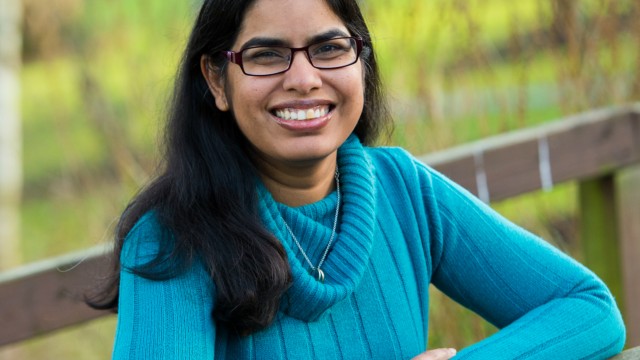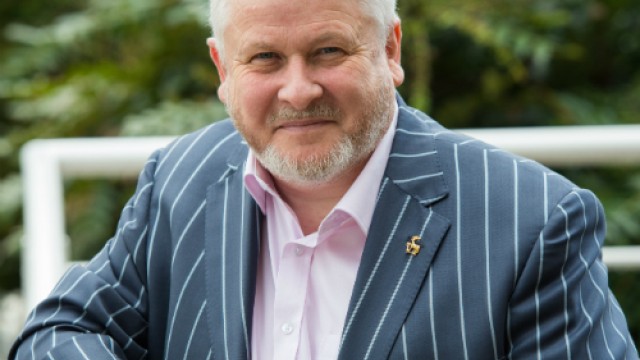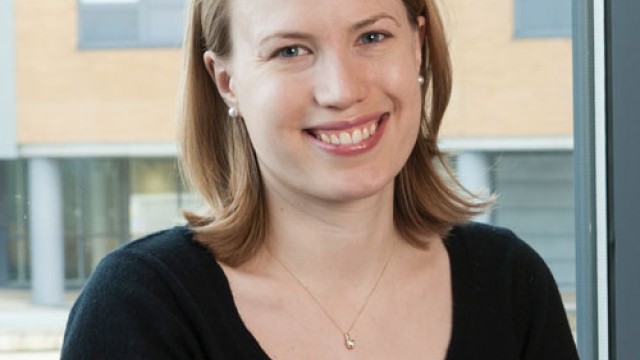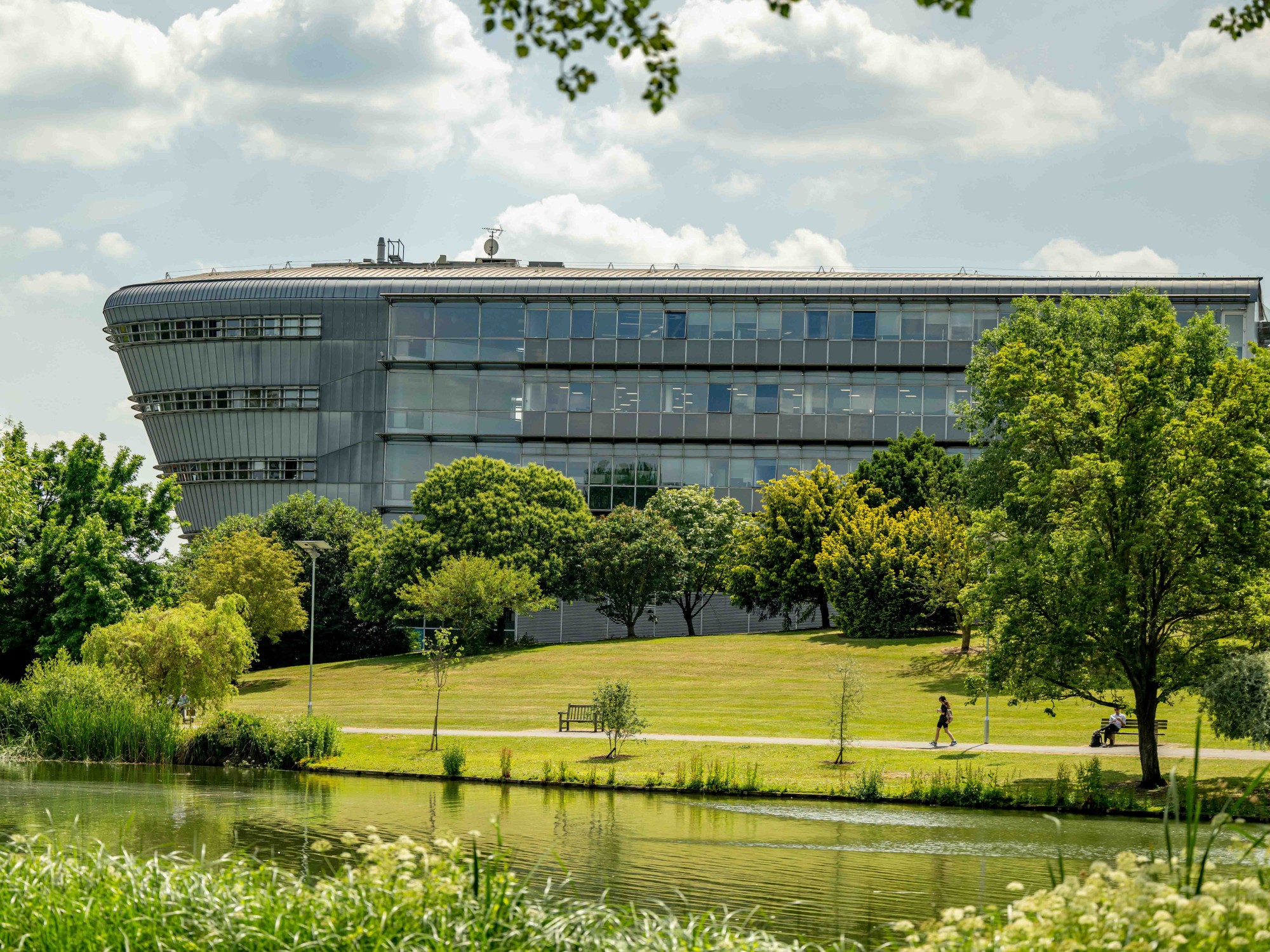
- Higher Education
PhD Higher Education
At the Surrey Institute of Education, our aim is to produce the next generation of researchers, ready to address the complex challenges in higher education, and help shape higher education policy and practice at local, national and international levels.
Why choose this
programme?
At the Surrey Institute of Education, our aim is to produce the next generation of researchers, ready to address the complex challenges in higher education, and help shape higher education policy and practice at local, national and international levels.
The Institute is one of the largest institutions in the UK dedicated to multidisciplinary research solely within higher education.
We’ve secured research grants from a variety of funders, including the British Academy, the Australia Research Council, the Economic and Social Research Council (ESRC), the Office for Students (OfS), the Leverhulme Trust, the Staff and Educational Development Association (SEDA), the Society for Research into Higher Education (SRHE) and the Wellcome Trust.
You’ll benefit from our vibrant research culture and you’ll work alongside leading academics who are at the forefront of their respective fields, giving you access to expertise in a range of areas of higher education.
The University of Surrey is 33rd in the UK rankings for overall research quality by the Research Excellence Framework (REF) 2021. The research quality of the Surrey Institute of Education was ranked 20th out of 83 submissions for Education. In terms of outputs [research papers and other published works], 43 per cent of the Institute’s outputs were considered world-leading (4*) for their originality, significance and rigour, placing us 11th out of the 83 submissions. For impact, we have been ranked 20th with 100 per cent of impact case studies judged to have outstanding or very considerable impacts in terms of their reach and significance.
What you will study
Our PhD is research-based, so you’ll spend most of your time developing a research question, conducting original research, analysing your results and writing up your findings, all under the guidance of your project supervisors. We’ll also give you tailored research methods training through online and face-to-face tutorials.
Current students are researching topics including:
- Internationalisation of higher education: Chinese language learning in Pakistan.
- Promoting English foreign language students’ willingness to communicate through teacher classroom behaviour and strategies in the Saudi context.
- Challenges to teaching values: Exploring the effect of changing national context on the professional identity of international academics teaching in UK universities.
- Students’ experiences: Neoliberal expectations and students’ mental health in British higher education.
- Enhancing EFL students’ feedback literacy in China’s application-oriented universities.
We will equip you with the skills and knowledge needed to shape professional practice and policy, allowing you to pursue a highly fulfilling career in academic, research and learning development positions within the higher education sector. Graduates also can take up roles as researchers for government think-tanks, as well as policy research advisers.
Assessment
You’ll have a confirmation assessment to review your project formally. If you're a full-time student, this will take place around 12-15 months into your studies or 24-30 months if you’re studying part-time. You’ll be required to submit a written report and successfully complete an oral examination.
Your final assessment will be based on the presentation of your research in a written thesis, which will be discussed in a viva examination with at least two examiners. You have the option of preparing your thesis as a monograph (one large volume in chapter form) or in publication format (including chapters written for publication), subject to the approval of your supervisors.
Location
This course is based at Stag Hill campus. Stag Hill is the University's main campus and where the majority of our courses are taught.
Research themes
Our research investigates:
- Assessment and feedback, including external examiners practice and student engagement with feedback.
- Educational transitions, including students and academic staff transitions and mobility, in national and international academic contexts.
- Identities and values in education, including professional identity development of academic staff and students.
- Language and literacy learning, including students' motivation in learning English language.
- Science, technology, engineering and mathematics (STEM) and disciplinary education, including girls’ participation in STEM subjects at the higher education level, and the teaching and learning of STEM and disciplinary subjects.
We’ll encourage you to address some aspect of these themes either at the general higher education level or within specific disciplines in their research proposal. We also welcome applications that may not fit these themes but have a higher education aspect to them.
Discover more about the research in the Surrey Institute of Education.
Research groups and labs
Throughout your studies you’ll have at least two supervisors, with at least one from the Surrey Institute of Education, who’ll have expertise relevant to your research project.
Your supervisors will:
- Give you academic guidance
- Help in developing your research ideas and plans
- Consider your theory and methods, and analyse your work
- Read and comment on your draft work, giving you honest and constructive feedback
- Provide you with pastoral support and advice, referring you to more specialist services where necessary.
Supervisors may include:
Research support
Progress reviews
In addition to the confirmation process you’ll have six-monthly progress reviews with your supervisors. These meetings are an opportunity to reflect on your progress, discuss successes and challenges and set targets for the next six months. These reviews will be monitored by postgraduate research directors and recorded on your student record.
You’ll also have one formal meeting with your supervisors every month and can expect to have more frequent meetings between these. The regularity of these will depend on the nature and stage of your project.
Professional development
You’ll be invited to engage in regular research activities within the Surrey Institute of Education, giving you a breadth of tangible experience and real-world insight into a higher education institution. There are regular doctoral focused workshops that are co-designed and/or co-determined with the doctoral researchers.
The professional development of postgraduate researchers is supported by the Doctoral College, which provides training in essential skills through its Researcher Development Programme of workshops, mentoring and coaching. A dedicated postgraduate careers and employability team will help you prepare for a successful career after the completion of your PhD.
Facilities
Postgraduate researchers have a dedicated shared office space. Postgraduate researchers are also welcome to work within the hot-desking areas in the communal office spaces.
Postgraduate researchers also have access to two seminar rooms and the kitchen/community space.
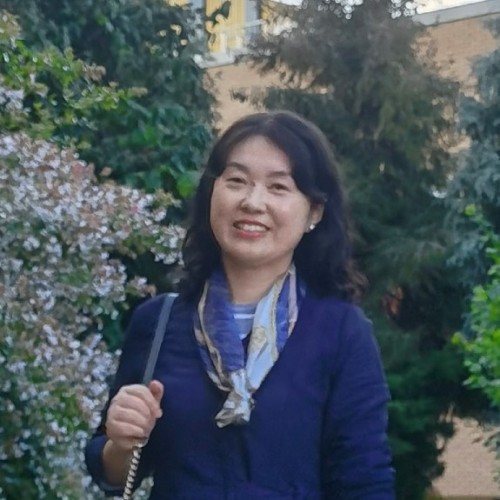
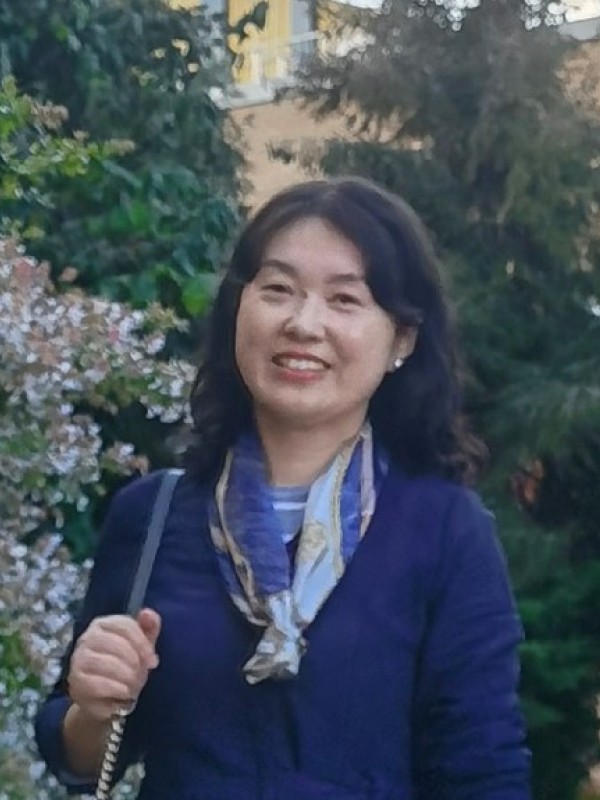
Fengmei Zhu
Student - Higher Education PhD
PhD student, Fengmei Zhu, is based in the Surrey Institute of Education, carrying out research to improve students’ abilities of understanding, giving and receiving, as well as acting upon feedback to assist learning. Fengmei has conducted part of her research in the UK and is in China gathering more data.
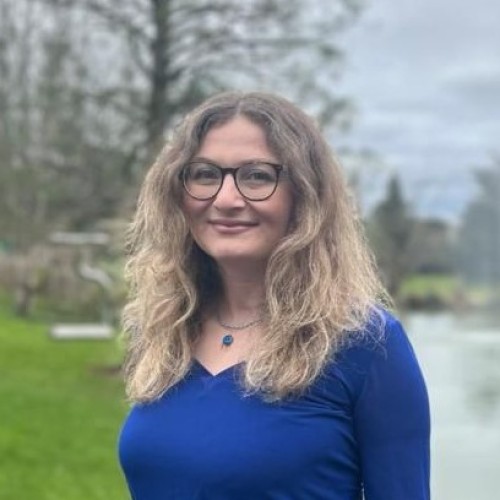

Beyza Ucar
Student - Higher Education PhD
"Life in Surrey is full of opportunities. There’s a friendly, collaborative community awaiting you, preparing you for professional academic life and contributing towards your development as a researcher. Additionally, the University offers a wonderful campus experience"
UK qualifications
Applicants are expected to hold a good honours degree in an appropriate discipline.
English language requirements
IELTS Academic: 6.5 overall or above (or equivalent) with at least 6.0 in each individual category.
These are the English language qualifications and levels that we can accept.
If you do not currently meet the level required for your programme, we offer intensive pre-sessional English language courses, designed to take you to the level of English ability and skill required for your studies here.
Selection process
Selection is based on applicants:
- Meeting the expected entry requirements
- Being shortlisted through the application screening process
- Completing a successful interview
- Providing suitable references.
Fees per year
Explore UKCISA's website for more information if you are unsure whether you are a UK or overseas student. View the list of fees for all postgraduate research courses.
* Please note: any start date other than September will attract a pro-rata fee for that year of entry (75 per cent for January, 50 per cent for April and 25 per cent for July).
October 2025 - Full-time
- UK
- £5,006
- Overseas
- £21,000
October 2025 - Part-time
- UK
- £2,503
- Overseas
- £10,500
July 2025 - Part-time
- UK
- £598
- Overseas
- £2,525
July 2025 - Full-time
- UK
- £1,197
- Overseas
- £5,050
January 2026 - Full-time
- UK
- £3,755
- Overseas
- £15,750
January 2026 - Part-time
- UK
- £1,877
- Overseas
- £7,875
April 2026 - Full-time
- UK
- £2,503
- Overseas
- £10,500
April 2026 - Part-time
- UK
- £1,252
- Overseas
- £5,250
- Annual fees will increase by 4% for each year of study, rounded up to the nearest £100 (subject to legal requirements).
Additional costs
There are additional costs that you can expect to incur when studying at Surrey.
Funding
A Postgraduate Doctoral Loan can help with course fees and living costs while you study a postgraduate doctoral course.
Application process
Applicants are advised to contact potential supervisors before they submit an application via the website. Please refer to section two of our application guidance.
After registration
Students are initially registered for a PhD with probationary status and, subject to satisfactory progress, subsequently confirmed as having PhD status.
About the University of Surrey
Need more information?
Contact our Admissions team or talk to a current University of Surrey student online.
Code of practice for research degrees
Surrey’s postgraduate research code of practice sets out the University's policy and procedural framework relating to research degrees. The code defines a set of standard procedures and specific responsibilities covering the academic supervision, administration and assessment of research degrees for all faculties within the University.
Download the code of practice for research degrees (PDF).
Terms and conditions
When you accept an offer to study at the University of Surrey, you are agreeing to follow our policies and procedures, student regulations, and terms and conditions.
We provide these terms and conditions in two stages:
- First when we make an offer.
- Second when students accept their offer and register to study with us (registration terms and conditions will vary depending on your course and academic year).
View our generic registration terms and conditions (PDF) for the 2024/25 academic year, as a guide on what to expect.
Disclaimer
This online prospectus has been published in advance of the academic year to which it applies.
Whilst we have done everything possible to ensure this information is accurate, some changes may happen between publishing and the start of the course.
It is important to check this website for any updates before you apply for a course with us. Read our full disclaimer.
